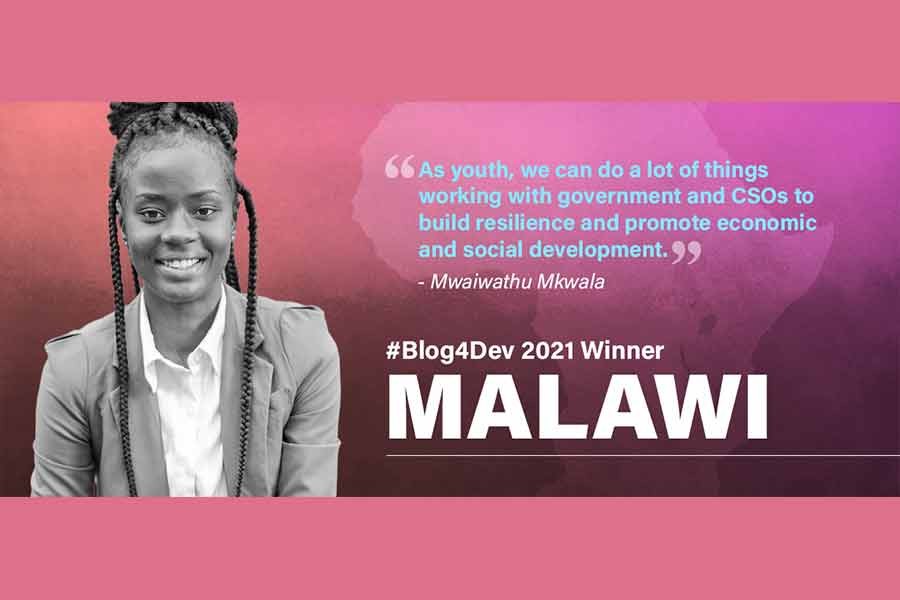Covid-19 (coronavirus) has negatively affected Malawi in various dynamics of development sectors, hence pushing more people towards extreme poverty than before the pandemic. Many people lost jobs; businesses shut down. Congestion in health services led to shortage of health personnel and medical resources to help people in hospitals. Deaths of beloved ones affected people's mental health and daily activities among other effects. All these have, in one way or another, contributed to the economy negatively by largely affecting the marginalised populations of the country and leaving them in dire need of essential services that are also on the lifeline. As youth, we can do a lot of things working with the Government of Malawi and civil society organisations in order to build resilience and promote economic and social development.
Firstly, meaningful participation by the youths in the decision-making process at all levels, pitching in their ideas, and promoting development agendas will allow youths to voice out problems that affect them. Assuming active roles in implementation and monitoring of development interventions, the youths will also ensure that those interventions are really solving problems on the ground.
Youths also need to use their skills obtained through formal education or in communities to contribute to development in Malawi by working in youth groups or small and medium enterprises. In a country that largely depends on agriculture, innovations such as basic machine inventories are needed. They could increase food production to ensure food security, and the excess may be used for agri-business and agro-processing that could also be sold on international markets.
Advocating for policy changes may also help build stronger post-pandemic development systems to recover from the current shocks and prepare for the future, preventing problems that were faced in 2020. The youth may use various platforms, including social media, to advocate for all essential public services to be adequately funded and gender responsive when addressing the needs of the poor and vulnerable. This will allow equality in accessing quality and affordable services such as hospitals since the personnel will be well-equipped. This might also help women, who tend to take up frontline and low-paying jobs, secure decent jobs and pursue their dream careers.
The youth may also provide voluntary services to those who were mentally affected by the loss of jobs or their beloved ones. The youth could provide psycho-social therapy to restore mental health of victims of abuse and even enable them to speak out and seek help from professionals. This way, those victims would be able to get back to socialisation and their daily activities, or improve their entrepreneurial skills to set up small-scale businesses which also foster development. Youths may also play roles in mentorship, peer education, and encouraging those affected by closure of schools, hence helping re-enrolment and retention of both boys and girls in school. This is essential for promoting girl child education and ending early marriages.
The piece is excerpted from www.blogs.worldbank.org. The writer is winner of the 2021 Blog4 Dev competition for Malawi.


